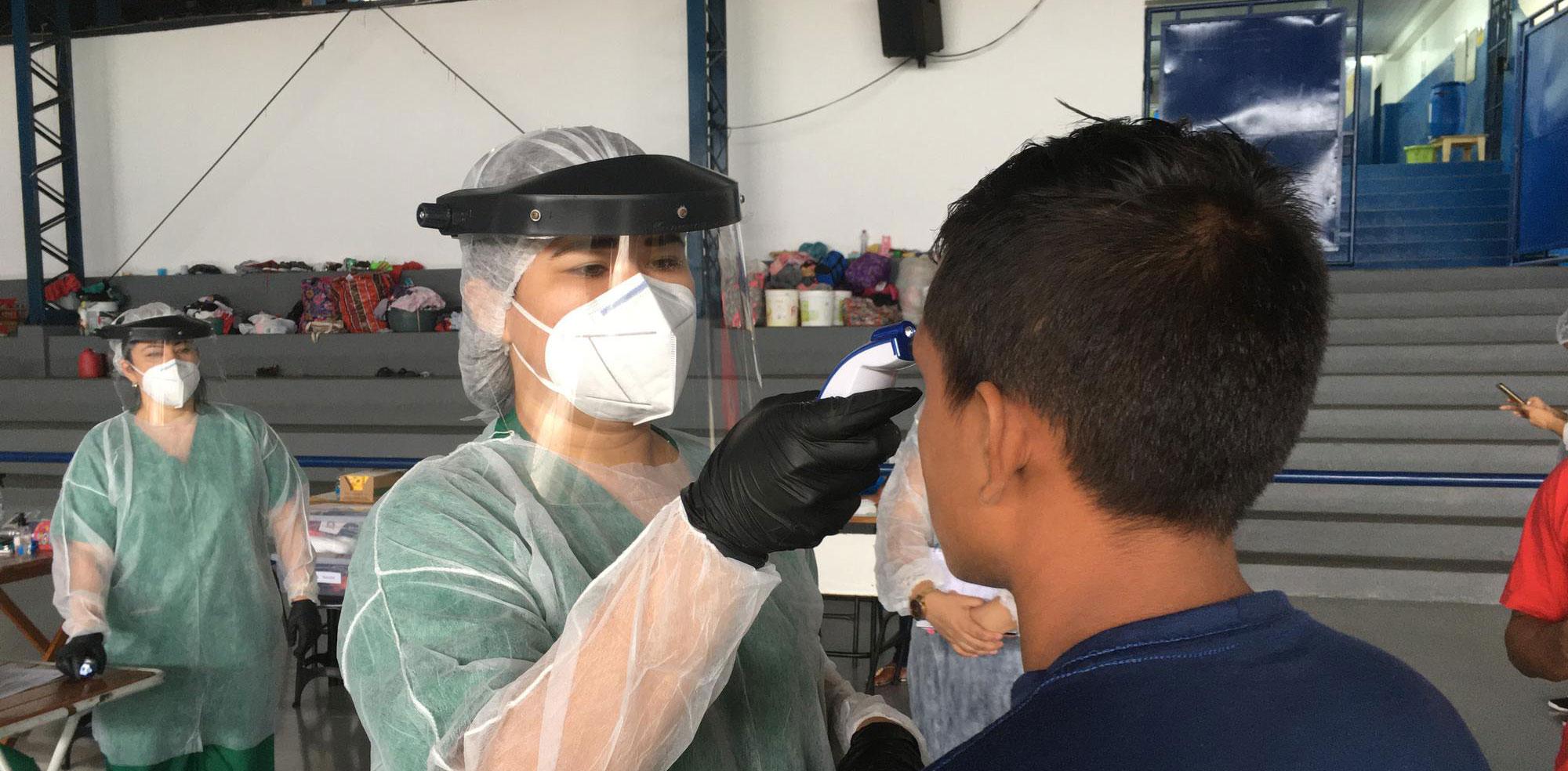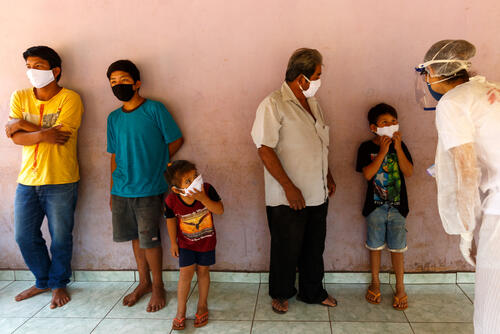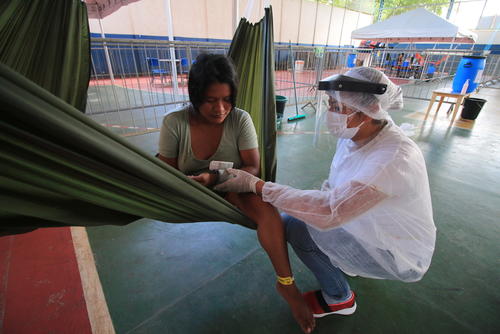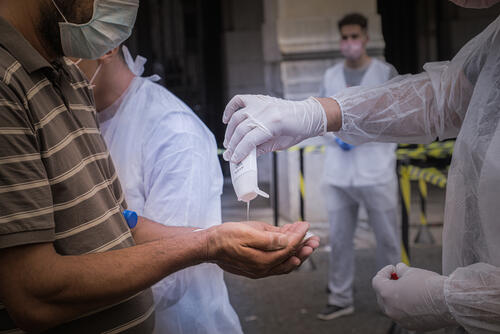- MSF teams are scaling up their work in the state of Amazonas to respond to the COVID-19 pandemic.
- Despite its relative small population, the state of Amazonas is among the regions with the highest absolute number of deaths caused by the new coronavirus in Brazil.
- So far, at least 1,780 people have died of COVID-19. It has caused the collapse of the state's health and funerary systems.
- Because of the gravity of the situation, MSF's response will include intensive care for critically ill patients, medical isolation for mild or moderate cases and substantial health promotion actions in urban and rural areas.
Local hospitals in Manaus, the capital of Amazonas state, have managed to increase their numbers of intensive care unit (ICU) beds, but unfortunately, mortality rates linked to the disease remain high. Over the last several weeks, mortality rates have reached alarming levels in the capital and throughout the state.
To reduce the number of people dying, MSF will start working at Hospital 28 de Agosto, managing 12 ICU beds for critically ill patients and 36 beds for moderate cases and will provide the medical staff to care for patients with COVID-19. Our teams are also preparing to provide similar support to other hospitals in the city.
MSF has already been working in six shelters for refugees and homeless people in Manaus to provide health promotion sessions, hygiene support to help prevent COVID-19 transmission, and medical consultations and screening to identify people who might have COVID-19. By the end of this week, in partnership with the state government, our teams will set up an isolation and observation centre for vulnerable people with milder cases of the disease, who do not need hospitalisation.
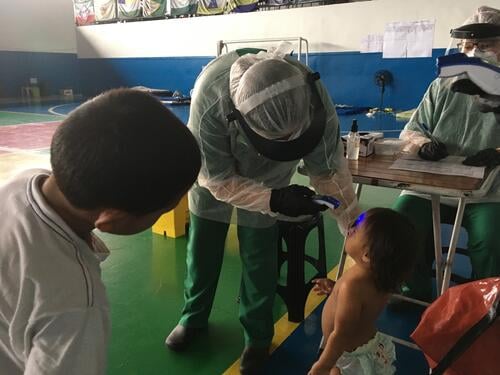
MSF teams will also launch a response this week in remote areas of rural Amazonas, to support quality medical care for patients with moderate and severe cases of COVID-19. Our teams intend to work in at least two locations, one of which is the municipality of São Gabriel da Cachoeira.
The health of indigenous communities who struggle to reach healthcare is of major concern, and MSF is consulting with indigenous leaders and organisations to guide assistance for these communities.
“The situation in Amazonas is very worrying," said Dr Cecilia Hirata, MSF field coordinator. "We believe that our work can make a difference and we are doing our best to begin operating as quickly as possible.”
The situation in Amazonas is very worrying. We believe that our work can make a difference and we are doing our best to begin operating as quickly as possible.Dr Cecilia Hirata, MSF field coordinator
Slowing the spread of COVID-19 is another important component of MSF’s response in Amazonas state. Reducing the rate at which people are infected will lower the number of critically ill patients who require medical attention at the same time, alleviating the burden on the health system.
For this reason, health promotion to disseminate correct information on preventive measures is essential. We are planning to increase our health promotion activities in both urban and rural areas. To reach people who live in remote areas, our teams are preparing to train community leaders, who can then pass on this knowledge to their communities.



